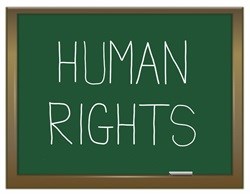
"Equity, for example, is a human right and a constitutional right, but what does equity mean to each of us and how does one apply it in all spheres of life? It is easy to know my rights and to go to court to defend them; it is much more difficult to internalise human rights values and to live up to them," she says.
Prof Roux is the leader of the Human Rights Education in Diversity (HREiD) research project at the Education and Human Rights in Diversity (Edu-HRight) research unit in the Faculty of Education Sciences at the North-West University, Potchefstroom Campus.
Prof Roux has been investigating human rights in education since 2004, often in collaboration with national and international faculties of education. One such study was completed in 2008 on intercultural and interreligious dialogue in a group of teachers and teacher education students.
Prof Roux and her research team found that respondents were well aware of their own rights within a legal framework and gave many examples of human rights violations in South Africa and elsewhere. They were also familiar with the human rights language of the Bill of Rights and the Constitution. However, there was a severe lack of knowledge, human rights education praxis and skills to address human rights values in classrooms. Only a minority of students and teachers indicated that they could cope with human rights and human rights education, beliefs and values as outlined in the curriculum and school environment.
These findings point to a tendency towards superficial content knowledge and classroom praxis in the area of human rights education. "Human rights education and the internalisation of these values are not always taken seriously in education systems, particularly in many South African education milieus," says Prof Roux. "Discrimination and violations of human rights are also visible in many tertiary institutions, and the question arose as to why the education institutions, including teachers, lecturers and professors, and our communities, are failing the next generation to prosper in mutual respect."
A current Edu-HRight research project that explores human rights literacy in the classroom is "Human rights literacy: the quest for meaning". This NRF-funded project, led by Prof Roux and her colleague Professor Petro du Preez, investigates literacies and knowledge on human rights education in teacher education at several South African faculties of education. "The problems identified in research indicated that our in-service and pre-service teachers do not have the knowledge construct to successfully facilitate human rights education," Prof Roux says.
"When there are issues that students and teachers don't understand or cope with, it will influence holistically all education spheres, and will impact on classroom praxis. The lack of human rights literacy seems to be the main impediment. "Human rights literacy underpins not only the understanding of legal terms and documents but especially the internalisation of human rights."
The project, quest for meaning, focuses on what human rights literacies entail and how these can contribute to transformative curriculum development and teaching-learning praxis. The aim is to positively influence teachers' and lecturers' engagement with human rights issues in education.
The team, which includes four researchers, three postdoctoral fellows and three students, is focusing on five main research areas. These are gender issues, human rights values, social justice, socio-cultural contexts, and curriculum development and implementation. The funded project commenced in November 2012 with a "walkabout" at four university campuses to gain broad insight into education students' views and understanding of human rights issues. The emphasis was on university campuses that were part of mergers a decade ago.
The main question posed to students during the walkabouts was, "What is the most important human rights value for you?"
"In some cases we found students very defensive of their own rights without understanding the others," says Prof Roux. "That already indicated a gap between students' conceptual understanding of human rights and internalised human rights values."
The next step was a survey among first and fourth-year education students and BEd Honours students at five universities in three provinces with 1,089 respondents. The aim was to determine their knowledge construct of human rights literacies within the five areas identified. "The 'born free' generation was specifically included to determine their impact on understanding human rights literacies and its internalised values," says Prof Roux.
"A most rewarding part of the research was the focus group discussions and interviews with student volunteers from all ethnic, religious and cultural backgrounds involved in the survey. Rights are emphasised so strongly that the meaning of the right, the responsibility towards the right and the internalising of the human right values, all fall in the realm of literacy."
The project will also expand and include a university in Germany in the near future, to internationalise the development of theory for human rights literacies. The students of today are the teachers of tomorrow. Here's to a future where the next generation has a clearer, deeper understanding of human rights values - inside and outside the classroom.